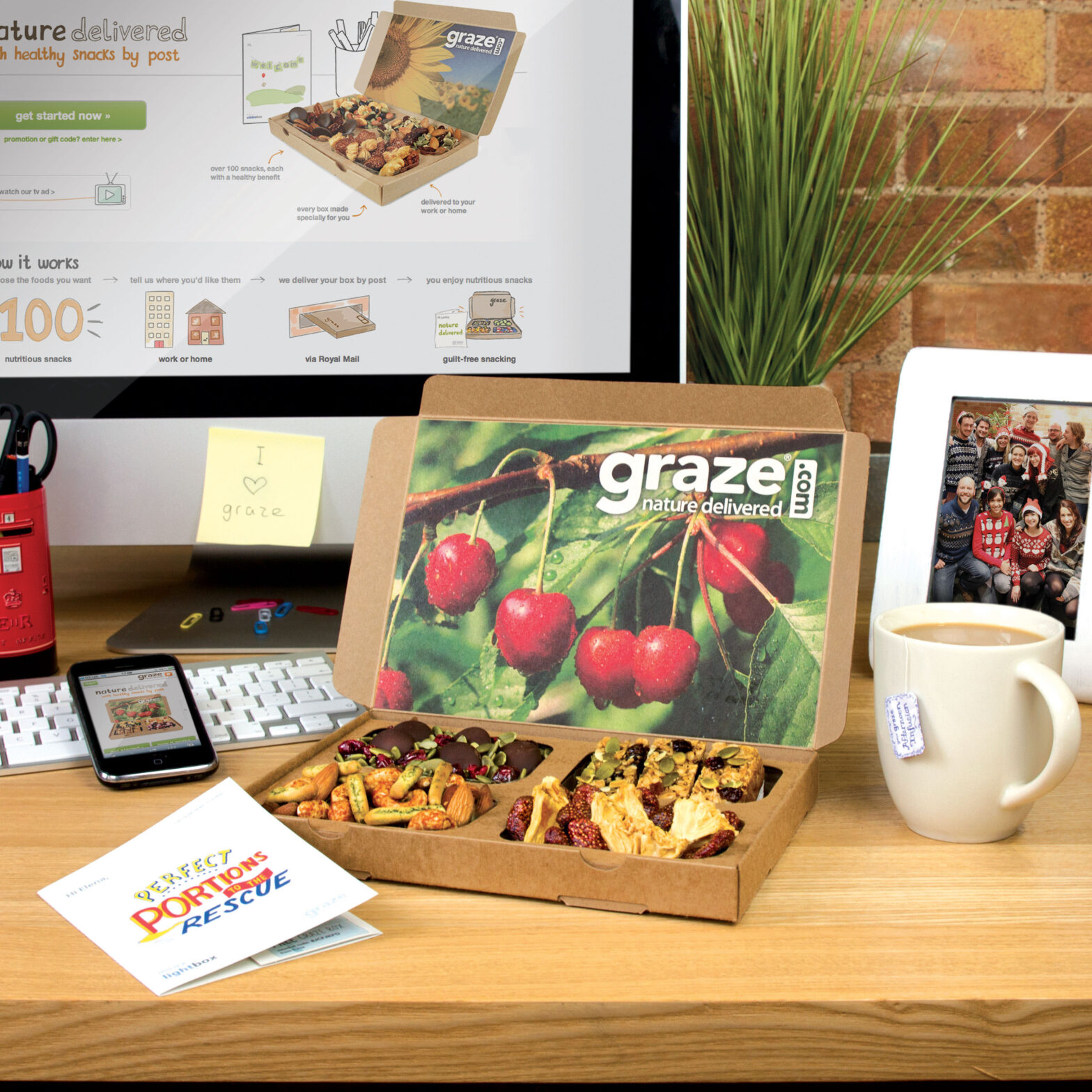The naming of a company, although vitally important, is often overlooked in the early days as other factors such as financing, building the right team and acquiring customers dominates.
However, getting it wrong at the start can prove to be extremely expensive and time-consuming if it has to be changed at a later date.
To find out how the right name has worked for five of the most promising growth and expansion-stage companies in Britain, we put three simple questions to co-founders from each business.
Anthony Fletcher, CEO of Graze
What was the inspiration for the name?
We were thinking around how to describe a better way of snacking visualising potential customers in the office. Being able to ‘graze’ on healthy snacks when you needed them was a very appealing image.
How much effort went into selecting it?
Lots! We wanted it to be short familiar dictionary word that is easy to remember. Not constrict our product offering too much by being overly descriptive. We also had to be able to secure the URL and be able to trademark it.
What does a company name means for branding/reputation/association?
A word which is easily recognisable and carries additional valuable meaning is very important. Graze has achieved a lot of growth through word of mouth which might have been much less successful with the wrong name. The exciting thing is that our name also works in the US where we launched at the back end of last year. We’ve seen explosive growth again powered by positive referrals from our initial ‘grazers’.
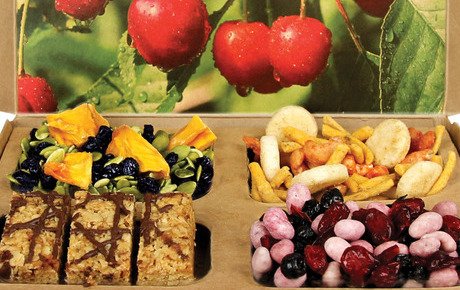
Graze has tapped into a growing tendency for healthy snacks
More on Graze:
Richard Reed, co-founder of Innocent Drinks
What was the inspiration for the name?
When we started, we knew we would have no money to advertise, so we needed to take every opportunity to find ways to communicate, and that started with having a name that would represent what we stood for. Our idea was to make fresh, natural, pure drinks that were guilt-free. We choose innocent as the name to sum that up.
How much effort went into selecting it?
A lot of effort. We had many false starts. We were originally called Fast Tracktor, and went through many other names. Eventually we settled on Naked. And then discovered it had already been trademarked. Then I spent a morning in the reference section of Huddersfield Town Library using the thesauruses to come up with other names like Naked, and Innocent pinged out.
What does a company name means for branding/reputation/association?
There are plenty of good companies with bad names and plenty of bad companies with good names, so one shouldn’t get too hung up with the moniker, but if you do have a central organising idea for your business and it can be reflected in a name that is relevant and ownable and distinctive, it really helps. These days we use the name innocent internally as an adjective to check what we do, as in we ask ourselves whether a certain behaviour or action ‘is very innocent’ or not before we do it.
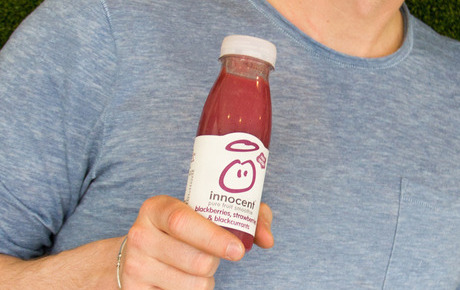
The Innocent Drinks name has gone on to create an ethos for the business
More on Innocent Drinks:
- Innocent Drink’s Richard Reed on life after a $500 million company
- On the road to success for Innocent
- Spending a small fortune
Alex Saint, co-founder of Secret Escapes
What was the inspiration for the name?
We were really keen to fight the trend in the web world of choosing made up, one-word names that bear no real relation to the product. We wanted something inspiring and intriguing (much like our product) but the actual process of finding the name was more about perspiration than inspiration.
How much effort went into selecting it?
As I’ve hinted already we put a huge amount of effort into deciding on the name because now the internet is so mature it’s incredibly difficult to find good domain names that are still available or not for sale for huge amounts of money. I can’t remember how many names we came up with that subsequently we couldn’t get suitable domains for. We were so taken with our eventual brand name that we ended up having to pay a few thousand pounds for Secretescapes.com, which seemed like a lot of money at the time.
What does a company name means for branding/reputation/association?
Our company name is absolutely central to our brand proposition as it conveys both functional and emotional characteristics of the brand which I think is absolutely essential. It’s been the inspiration for our TV ad creative which has been one of the most successful direct response TV campaigns ever. If you get it right, your brand name can be a critical part of your success.

Growth for Secret Escapes’ flash sale holidays has been driven by acquisitions
More on Secret Escapes:
- German acquisition for Secret Escapes
- The Stars of Tech City: Secret Escapes’ Alex Saint
- Secret Escapes joins list of Future Fifty firms
Debbie Wosskow, co-founder of Love Home Swap
What was the inspiration for the name?
With Love Home Swap, we wanted to create a brand that was stylish and would connect with consumers directly – something which had never been done before within our market, where the existing sites were very functional looking and sounding. We took inspiration for the business from the home swap rom com ‘The Holiday’ (starring Cameron Diaz and Kate Winslet) which we knew was a film people loved – and we wanted to capture some of that in the warmth of our brand name. At the same time, we wanted the business to be quickly and easily understood – an important consideration for building a brand in a new and emerging sector such as ours.
How much effort went into selecting it?
It was actually a pretty quick decision in the end – although we did brainstorm lots of alternatives at the time, but nothing that worked as well.
What does a company name means for branding/reputation/association?
We’ve looked to pull our company name into all of our site branding and customer communications. As you can imagine, the heart icon and colour pink are key elements of how we position ourselves to our members. But we’ve been keen to make sure this is done in a stylish way so that it sits alongside the other main elements of our branding.
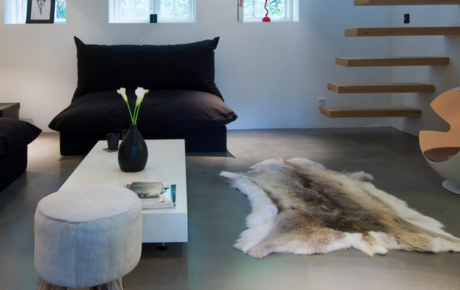
A frustration with what was available on the market led to Love Home Swap
More on Love Home Swap:
- Love Home Swap closes second MMC Ventures-led deal
- Maiden acquisition for Love Home Swap
- What makes a successful CEO?
Justin Peters, CEO and founder of Kabbee
What was the inspiration for the name?
Our app is helping to revolutionise the minicab industry, by doing everything we can to make sure minicabs are as busy as possible – at all times, right across London. We asked ourselves the question ‘what do minicabs represent most, in the grand scheme of the city’s transport offering?’. The answer was bees. At Kabbee, we think of a minicab as a busy bee, buzzing around the hive of London, picking up and dropping off passengers like pollen. Like minicabs, bees are vital to Londoner’s lives as they are the primary pollinators. If our native bees were to die out the effect on crops and wild flowers would be terrible, as would the shortage of minicabs in the city.
How much effort went into selecting it?
We held a range of brainstorms, and we also conducted consumer testing to ensure it was easy to say, spell and remember. Kabbee is designed to be there when people need it most, so it’s important that it’s catchy enough to be at the front of people’s minds.
What does a company name means for branding/reputation/association?
As the name Kabbee is directly associated with the activity of the bee, our logo is designed around the bee itself and its hard-earned honeycomb. Our motto is ‘Making Minicabs Mighty’, which promotes the fact that we’re using modern mobile technology to support the ecosystem of minicabs in London. By giving the customer access to the most competitive rates, exactly when and where they need them, we’re creating a platform that is becoming the natural choice for people who need to get from A to B, ensuring that minicabs are the first choice.
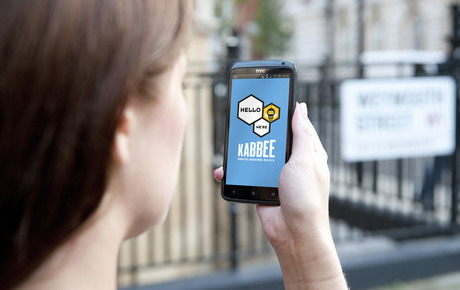
Kabbee has used an app-based format to drive engagement with customers


